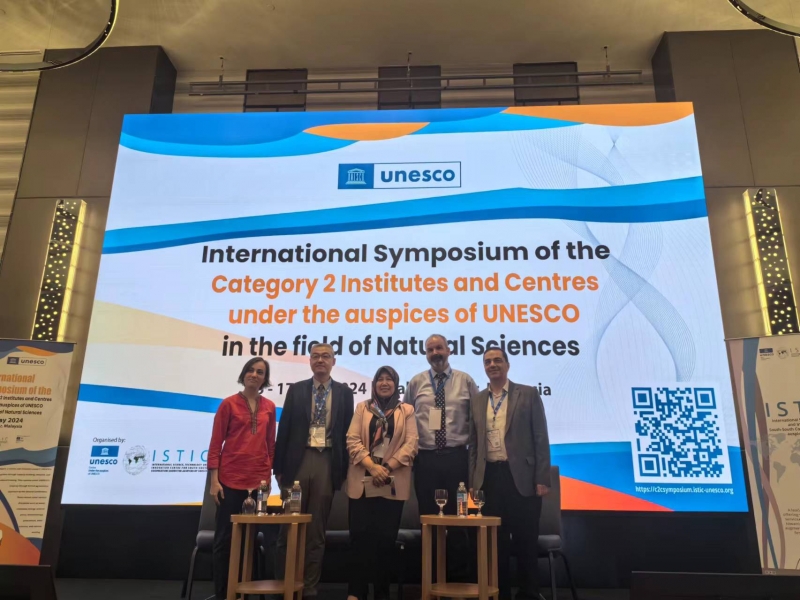The International Symposium of the Category 2 Institutes and Centres under the Auspices of UNESCO in the Field of Natural Sciences was held in Kuala Lumpur, Malaysia, from 15 to 17 May 2024. The symposium was co-hosted by UNESCO, International Science, Technology and Innovation Centre (ISTIC), the Permanent Delegation of Malaysia to UNESCO and the Malaysian National Commission for UNESCO. Lidia Arthur Brito, Assistant Director-General of Natural Sciences Sector of UNESCO, attended the event and delivered the keynote speech. Minister of Education of Malaysia Fadhlina Sidek and Minister of Science, Technology and Innovation of Malaysia Chang Lih Kang respectively attended and addressed the meeting.
At the invitation of the hosts, representatives of CISTRAT attended the symposium. During “The intersection of Science and Policy: Transformative Progress” session, Dr. Li Zhe, Director of the Office of Think Tank Operation and Research Management, introduced CASTED and CISTRAT, the international academic exchanges, training workshop, cooperation network and other work they carried out in recent years, and the role they played in China’s STI policy. In the Q&A session, Dr. Li answered questions about the formulation the evaluation of China’s STI policies.

This symposium was attended by representatives of 34 UNESCO Category II centres in the field of natural sciences from 23 countries. Delegates focused on realizing the Decade of Sciences for Sustainable Development and exchanged insights on seven themes, including “Water Sciences Research, Education and Capacity Development”, “Hubs for Sustainability: UNESCO-designated Sites and Networks”, “Water and Disaster Risk Reduction”, “Addressing the Planetary Crises: Climate Change and Biodiversity”, “Revolutionising Capacity Building in Engineering for SDGs”, “The Role of Basic Sciences in Advancing Emerging Technologies and Breakthrough Innovations”, and “The intersection of Science and Policy: Transformative Progress ”.

 No.8 Yuyuantan South Road, Haidian District, Beijing, 100038
No.8 Yuyuantan South Road, Haidian District, Beijing, 100038
 +8610 58884695 58884506
+8610 58884695 58884506
 +8610 58884678 58884588
+8610 58884678 58884588
 casted@casted.org.cn
casted@casted.org.cn
 http://www.casted.org.cn
http://www.casted.org.cn
